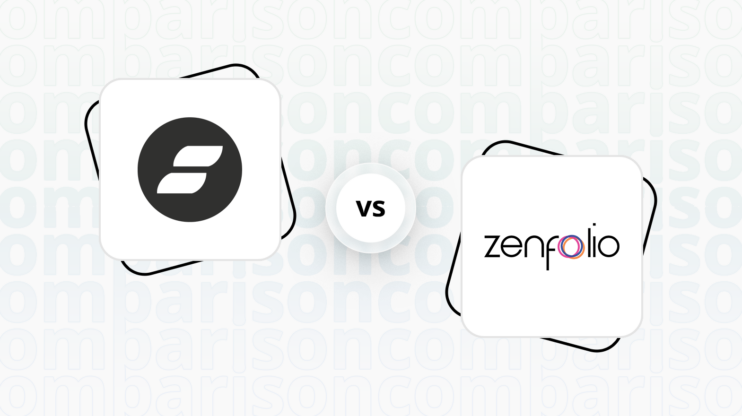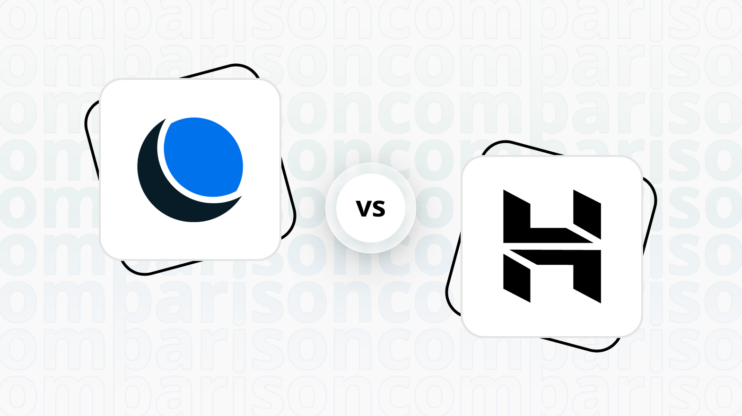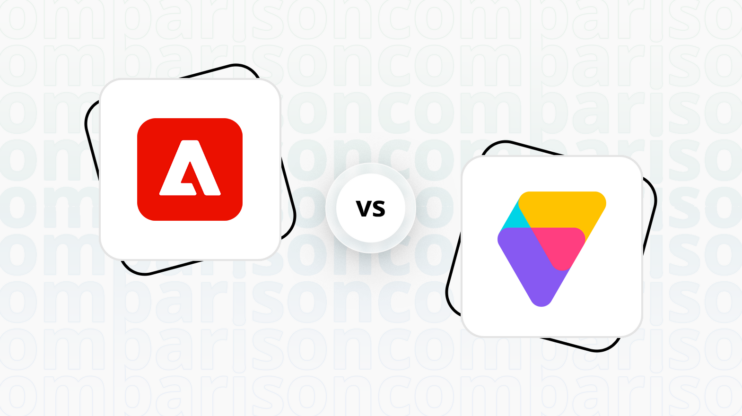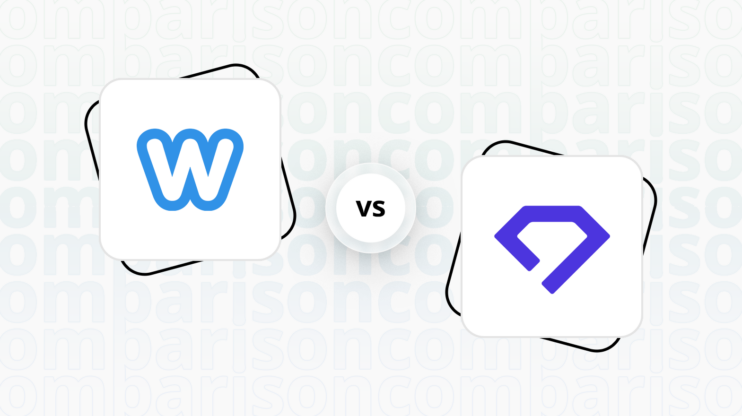Final verdict
Shopify and Google Sites cater to different needs, with Shopify excelling in ecommerce and Google Sites offering simplicity and collaboration.
-
Shopify (Overall Grade: 8.1/10)
is a robust ecommerce platform designed for businesses looking to create and manage online stores. It offers comprehensive tools for product listing, payments, and order fulfillment, making it ideal for serious online retailers. Shopify’s advanced design functionalities, extensive integrations, and superior customer support make it a top choice for ecommerce. -
Google Sites (Overall Grade: 5.6/10)
is a user-friendly website builder that integrates seamlessly with other Google services. It is perfect for team projects, personal portfolios, and small business websites. While it lacks the advanced ecommerce features of Shopify, its ease of use, collaborative capabilities, and integration with Google Workspace make it a solid choice for simple website creation.

|

|
|
|---|---|---|
|
Design functionalities & templates |
8.2 |
4.9 |
|
Ease of use |
7.5 |
8.3 |
|
Ecommerce |
9.2 |
1.8 |
|
Website Editors |
7.9 |
7.0 |
|
Product testing options |
8.1 |
6.9 |
|
Price |
8.2 |
8.1 |
|
Hosting quality |
9.0 |
8.2 |
|
Website speed optimization |
7.8 |
3.3 |
|
Plugins and integrations |
8.7 |
6.4 |
|
Marketing features |
8.8 |
2.6 |
|
Customer support |
8.6 |
7.2 |
|
Security |
9.0 |
9.3 |
|
AI capabilities |
7.9 |
0 |
|
User Management |
6.5 |
7.8 |
Best for ecommerce
 9.2
9.2
 1.8
1.8
Verdict
: When comparing Shopify vs Google Sites for ecommerce, Shopify is the clear winner due to its extensive ecommerce features and capabilities, while Google Sites falls short in this area.
-
Shopify
: Shopify is a robust ecommerce platform designed to cater to businesses of all sizes. It offers a comprehensive set of tools for creating and managing online stores, including advanced inventory management, multiple payment gateways, and detailed analytics. Shopify’s extensive app library further enhances its ecommerce capabilities, making it ideal for businesses looking to scale. With a best for ecommerce score of 9.2, Shopify stands out as the superior choice for serious online retailers. -
Google Sites
: Google Sites is primarily a tool for creating simple websites and lacks built-in ecommerce features. To set up an online store, users must rely on external integrations or services, which can be cumbersome and limited in functionality. With a best for ecommerce score of 1.8, Google Sites is not recommended for businesses looking to establish a robust online store. It is better suited for team projects, personal portfolios, and small business websites that do not require extensive ecommerce capabilities.
Best for informational & business websites
 6.8
6.8
 7.2
7.2
Verdict
: Google Sites is better suited for informational and business websites due to its ease of use and integration with Google services, while Shopify, though capable, is more tailored for ecommerce.
-
Shopify
: Shopify, primarily an ecommerce platform, can be used for informational sites but may feel overly complex for such purposes. Its design functionalities and templates are geared towards online stores, making it less ideal for simple informational websites. Shopify scores 6.8 in this category. -
Google Sites
: Google Sites offers a user-friendly interface and seamless integration with other Google services, making it an excellent choice for informational and business websites. Its drag-and-drop functionality and collaborative features make it easy to use, even for those with no coding experience. Google Sites scores 7.2 in this category. When comparing Shopify vs Google Sites, Google Sites stands out for its simplicity and ease of use.
Detailed comparison
Design functionalities & templates
Design FunctionalitiesRepresents how well each platform allows for creative design and customization of websites.Score Components:
- Template Variety (30%): Range and quality of design templates.
- Customization (30%): Flexibility and options for design alterations.
- User Interface (20%): Ease and intuitiveness of the design process.
- Responsiveness (10%): Adaptability to different devices and screen sizes.
- Innovation (10%): Unique design features and tools.
 8.2
8.2
 4.9
4.9
Winner: Shopify.
If you’re looking for a platform that offers more creative control and a wide array of design features, Shopify is the preferred choice.
Shopify’s templates are sleek and professional, ideal for ecommerce sites. They offer a sophisticated look with a focus on online stores. While the free template selection is not large, Shopify’s premium theme store provides a variety of industry-specific options, offering advanced features for a strong brand presence.
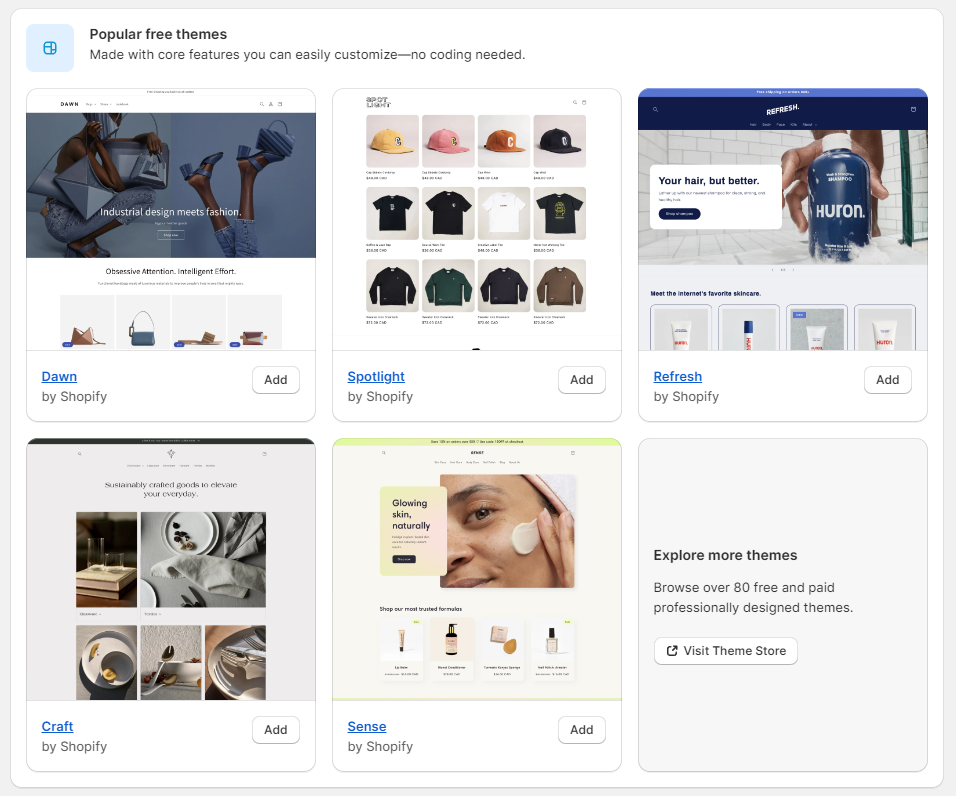
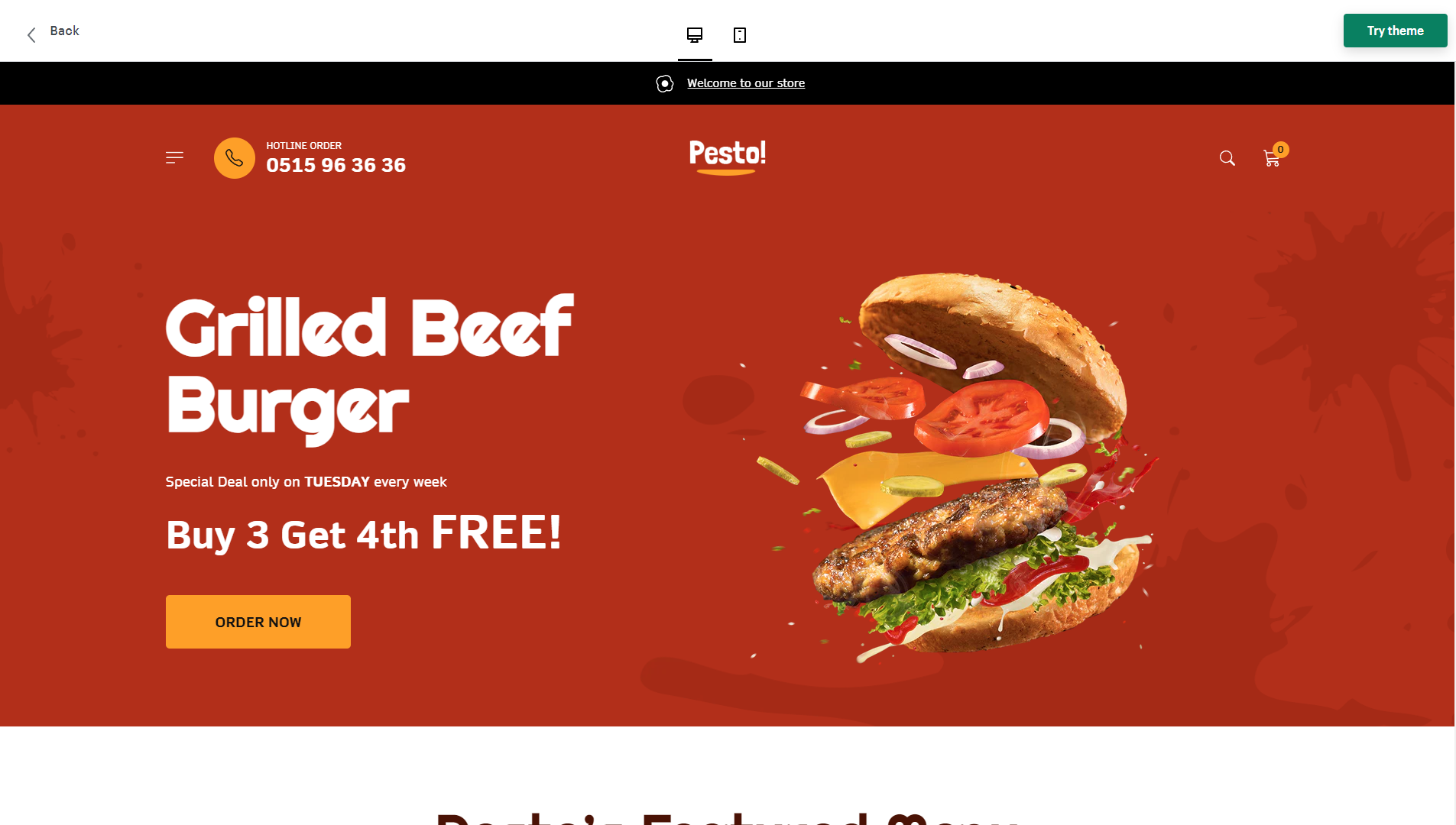
Compared to Shopify, Google Sites offers a limited number of templates suitable for various purposes, from personal blogs to business websites, with both free and premium options available. These templates are designed for user engagement, simplicity, and functionality, allowing for customization to meet specific needs. However, compared to other website builders like 10Web or Squarespace, Google Sites might offer less variety in templates and design customization options.
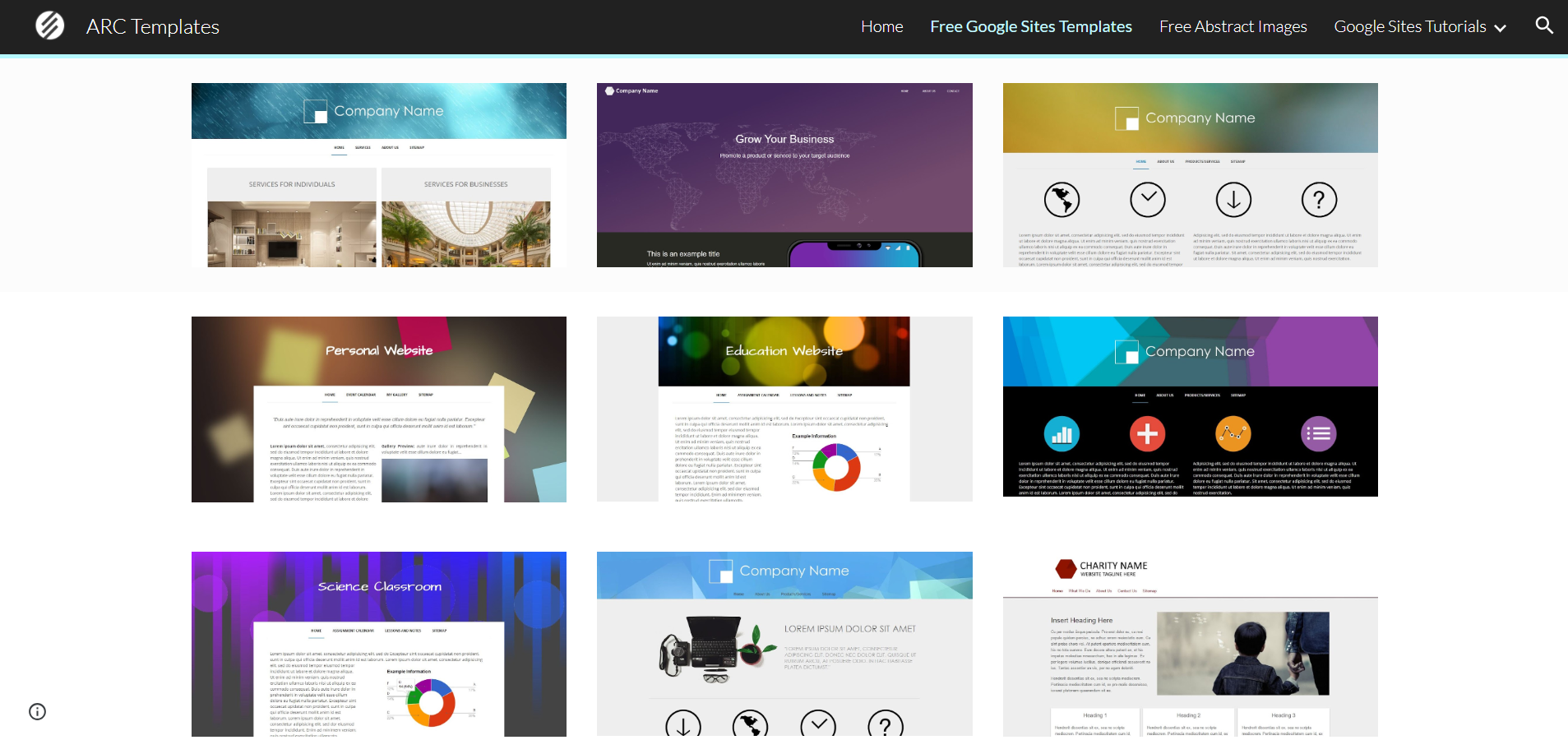

Get a head start on website creation with AI
Create a custom website tailored to your business needs 10X faster with 10Web AI Website Builder!
Ease of use
Ease of useReflects the platform’s overall user-friendliness.Score
Components:
- Learning curve (40%): Quickness and ease of getting started.
- Interface design (30%): Simplicity and intuitiveness of layout.
- User guidance (20%): Quality of tutorials and support.
- Flexibility (10%): Adaptability to various user skills.
 7.5
7.5
 8.3
8.3
🏆 Winner: Google Sites
. With a score of 8.3, Google Sites edges out Shopify (7.5) in terms of ease of use. Google Sites offers a user-friendly interface that allows individuals with no coding experience to create and publish websites easily. The drag-and-drop functionality simplifies the design process, making it accessible for users to add content, images, and customize layouts without technical difficulties. The platform integrates seamlessly with other Google services, enhancing its utility and ease of use for those already familiar with the Google ecosystem.
Learning Resources
🏆 Winner: Draw
. Both Shopify and Google Sites offer extensive learning resources. Shopify provides an extensive library of articles, tutorials, webinars, and video courses, focusing primarily on setting up and managing online stores. Google Sites offers a wide array of learning resources, spanning from practical guides for educators to create student portfolios and classroom websites to comprehensive digital skill development programs for the wider public.
For ecommerce
EcommerceMeasures the platform’s effectiveness in supporting online business activities.Score Components:
- Ecommerce themes and templates (20%): Variety and design of templates.
- Product management (25%): Ease of managing and organizing products.
- Payment options (25%): Variety and convenience of payment methods.
- Ecommerce features (20%): Features for managing an ecommerce store.
- Integration (10%): Compatibility with external e-commerce tools and services.
 9.2
9.2
 1.8
1.8
When it comes to ecommerce, Shopify is a clear winner over Google Sites. Shopify is a dedicated ecommerce platform that offers a comprehensive set of features for online businesses. It provides tools for creating and customizing online stores, managing products, processing payments, and handling order fulfillment.

|

|
|
|---|---|---|
|
Ecommerce themes and templates |
8.2 |
0.0 |
|
Product page customization |
8.5 |
0.0 |
|
Payment processing and commissions |
8.8 |
1.0 |
|
POS capabilities |
8.1 |
0.0 |
|
Payment gateways |
9.5 |
2.0 |
|
Product numbers |
9.0 |
0.0 |
|
Additional ecommerce features |
9.1 |
0.5 |
Shopify ecommerce features:
- Comprehensive store builder
- Shopify Payments and other gateways
- Advanced inventory management
- Multi-channel selling
- Abandoned cart recovery
- Detailed analytics and reporting
On the other hand, Google Sites is primarily a tool for creating simple websites and does not have built-in ecommerce features. To set up an online store on Google Sites, you would need to rely on external integrations or services. This could include embedding third-party tools or widgets, linking to an external ecommerce platform, or using buttons that link to payment processors.
Google Sites ecommerce features:
- No built-in ecommerce features. Requires external integrations or services for ecommerce functionality.
Ecommerce themes & templates
Shopify offers about 150 modern responsive themes for creating a virtual storefront, ensuring a good look on both desktop and mobile devices. While some themes are free, others cost between $170 to $380. Google Sites, however, does not offer any ecommerce templates.
Product page customization
Shopify allows for three options per product, totaling 100 unique variations. While Shopify offers titles, descriptions, and image galleries with zoom effects, customization options like adding ribbons, size charts, and wishlists are not as straightforward. However, Shopify distinguishes itself with additional features through its extensive library of extra apps, offering functionalities like reviews, Facebook stores, eBay item importers, and a unique Augmented Reality feature for an enhanced customer experience. Google Sites lacks any product page customization features, as the products can be listed with embedding third-party platforms, all the customization can be done within the mentioned platforms.
Payment processing
Shopify offers payments with typical charges of 2.9% + 30¢ per online transaction on basic plans, and lower fees for higher-tier plans. However, it adds extra fees for using other payment gateways. Shopify Payments is Shopify’s own payment processing gateway. It allows merchants to accept credit card payments directly on their store without having to integrate third-party payment providers. This simplifies the payment process, reduces transaction fees, and streamlines the handling of finances.
On the other hand, Google Sites does not have native payment processing features. You can integrate payment gateways into Google Sites using external tools or links. This can be done by embedding HTML code for payment buttons from services like PayPal, Square, or Stripe, or by linking to an external checkout page. Third-party eCommerce widgets also offer a way to add payment functionalities. However, Google Sites doesn’t offer the comprehensive eCommerce capabilities that dedicated platforms like Shopify provide.
Website Editors
Website EditorsEvaluates the platforms’ website building and editing capabilities.Score Components:
- Customization tools (40%): Range and power of editing features.
- Editor usability (30%): User experience within the editor.
- Design flexibility (20%): Freedom in layout and design changes.
- Update and maintenance ease (10%): Simplicity of updating and maintaining the site.
 7.9
7.9
 7.0
7.0
🏆
Winner: Shopify
. Shopify, with a score of 7.9, excels in providing a streamlined, ecommerce-focused editing experience. It’s particularly beneficial for users who prioritize efficient management of online stores. The editor is straightforward, making it easy to add products, manage inventory, and set up payment methods. Shopify’s editor is optimized for sales and business growth, with built-in tools specifically designed for ecommerce businesses.
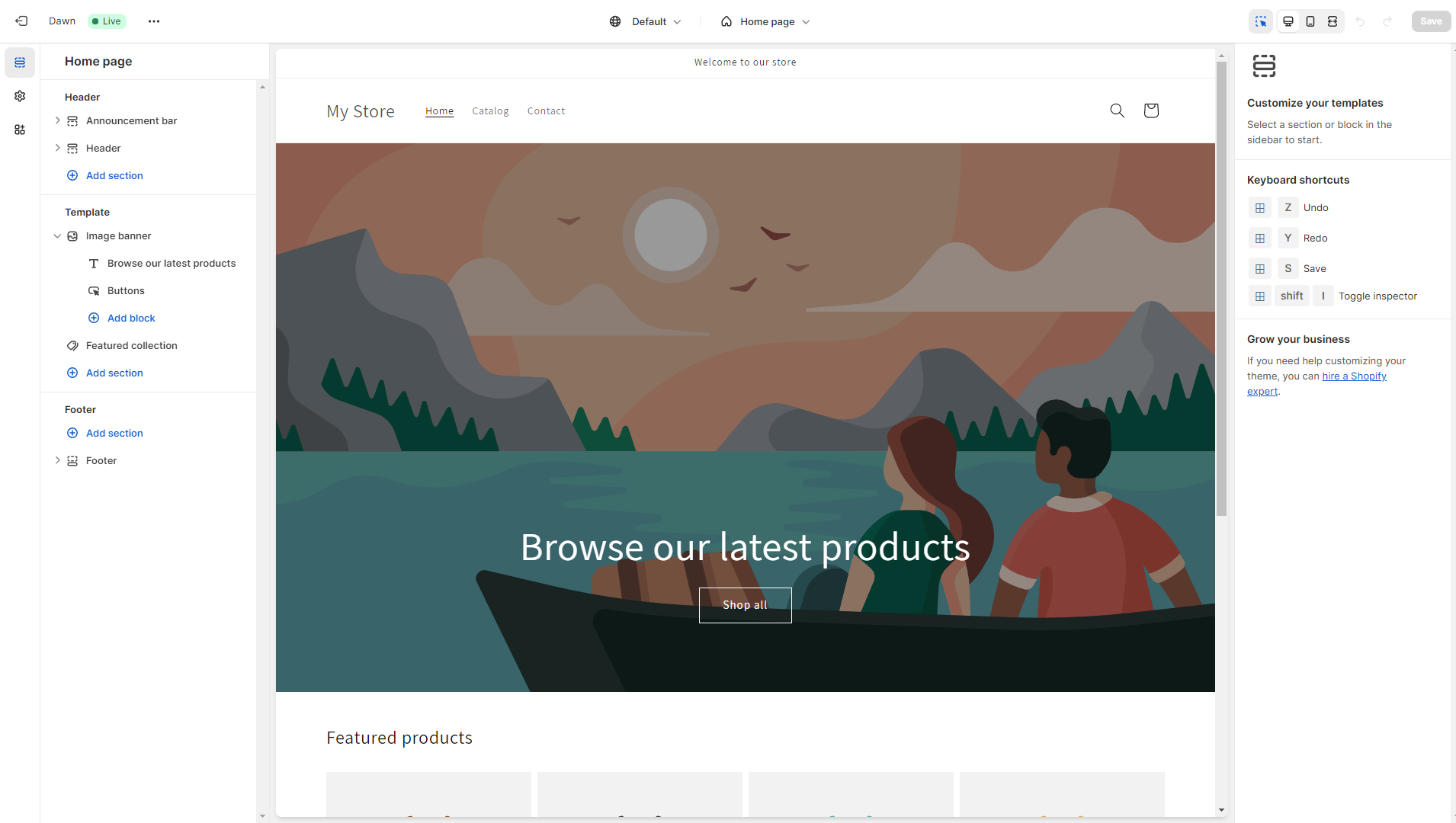
Google Sites’ editor, scoring 7.0, offers a user-friendly website builder editor that allows users to create and design websites without needing coding knowledge. With its drag-and-drop interface, users can easily add, customize, and arrange elements such as text, images, and videos on their web pages. It also provides a variety of templates and design options to help users get started quickly and ensure their site looks professional. Additionally, Google Sites integrates seamlessly with other Google services, enabling the incorporation of Google Docs, Sheets, Slides, and Maps directly into the website.
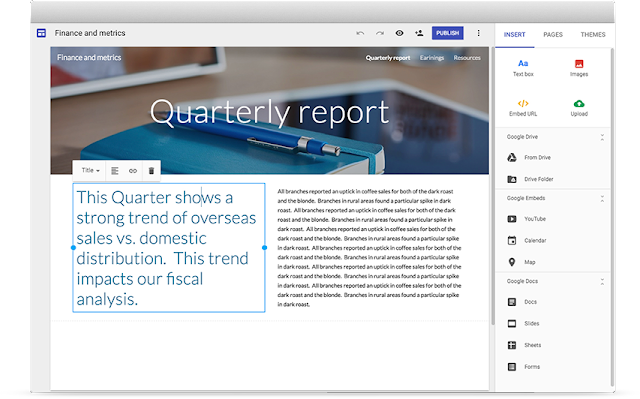
Mobile editor/app
 8.0
8.0
 0
0
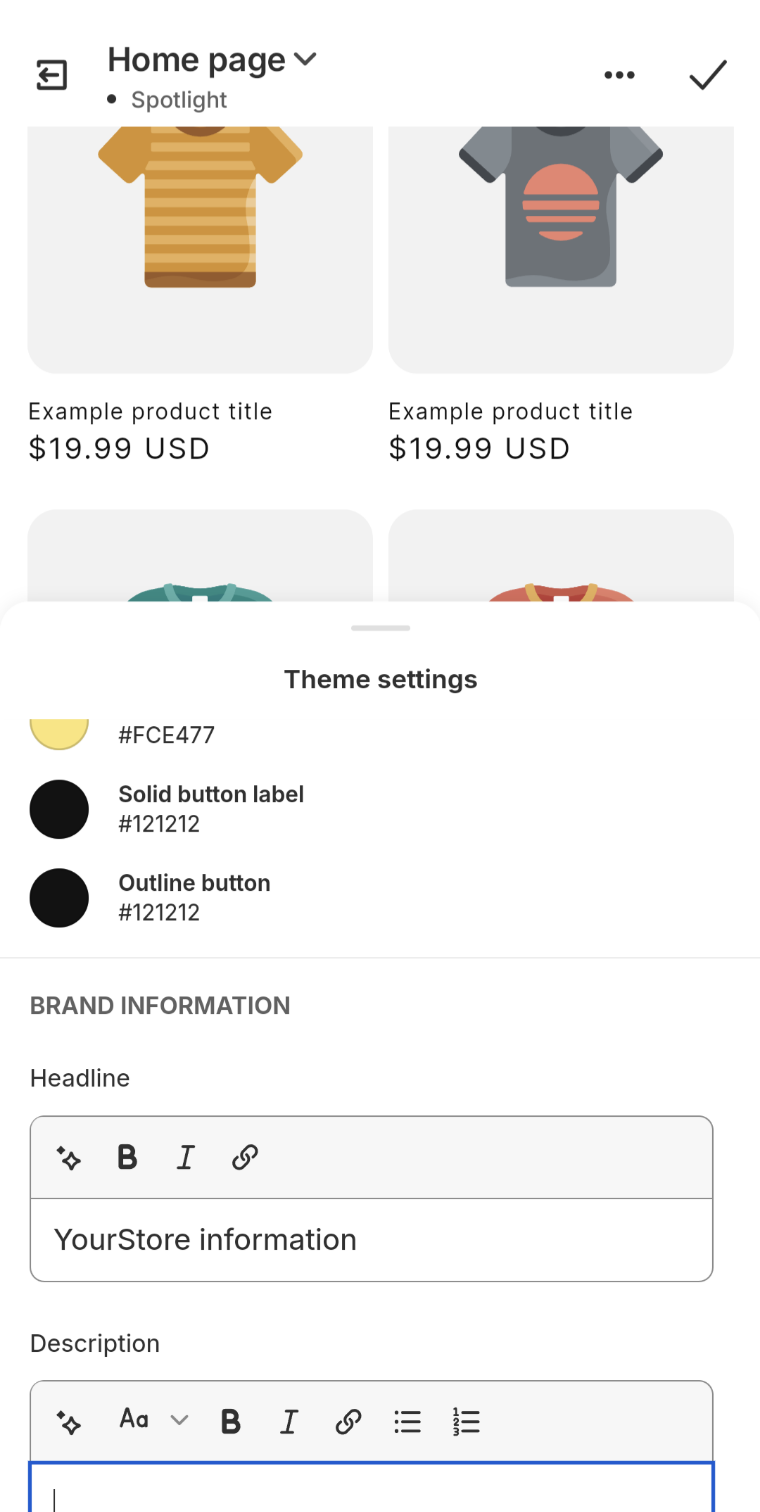
🏆
Winner: Shopify
. Shopify offers a mobile app that includes a user-friendly mobile theme editor. This feature allows users to customize their online store website directly from their mobile device. Users can add, remove, edit, and rearrange content on their store’s website, offering convenient on-the-go adjustments to the store’s appearance and layout.
On the other hand, Google Sites does not have a mobile editor app. This lack of mobile editing capabilities puts Google Sites at a disadvantage compared to Shopify, which provides a comprehensive mobile editing experience.
Product testing options
Product Testing OptionsAssesses the options for trying out platform features before commitment.Score Components:
- Trial quality (40%): Extent and usefulness of the trial or free version.
- Feature accessibility (30%): How many features are available to test.
- Trial duration (20%): Length of the trial period.
- Ease of transition (10%): Smoothness of moving from trial to paid plans.
 8.1
8.1
 6.9
6.9
Overall Result
:
Shopify wins
. Shopify scores 8.1, offering a 14-day free trial with access to all features, while Google Sites scores 6.9, offering a 14-day trial but only with access to some premium features. Google Sites does not offer a money-back guarantee.

|

|
|
|---|---|---|
|
Free Plan |
No (14-day free trial) | Yes |
|
Trial Duration |
14 days | 14 days |
|
Testing Premium Features |
All features during free trial |
Some features during trial period |
|
Money Back Guarantee |
Yes |
No |
Price
PriceLooks at the cost-effectiveness and value for money of each platform.Score Components:
- Plan value (40%): What each pricing tier offers.
- Transparency and clarity (30%): Clearness of pricing structures.
- Flexibility of plans (20%): Range of options to suit different budgets.
- Hidden costs (10%): Additional expenses not included in the plan.
 8.2
8.2
 8.1
8.1
Shopify and Google Sites have different pricing structures, with Shopify offering more ecommerce-focused features and Google Sites providing a more collaborative, user-based pricing model.

|

|
|
|---|---|---|
|
$0-$10 |
No offering at this amount. |
Business Starter ($7.20/month): This plan includes basic features suitable for individuals or small businesses, offering professional email through Gmail, 30GB of storage per user, and video meetings for up to 100 participants. It allows to manage 1 website and there is no limitation on number of pages. Value for price: 6.0 |
|
$10-$20 |
No offering at this amount. |
Business Standard ($14.40/month): Suitable for growing businesses, this plan provides 2 TB of storage per user, video meeting capacity for up to 150 participants with recording features, and access to smart booking pages and shared drives. It allows to manage 1 website and there is no limitation on number of pages. Value for price: 7.5 |
|
$20-$30 |
Shopify Basic ($29/month): Unlimited products, 2.9% + 30¢ card fee with Shopify payments, Extra 2% gateway fee without Shopify Payments, Abandoned cart recovery, Automated sales tax, Digital products, POS Integration, 2 staff accounts. Value for price: 8.0 |
Business Plus ($21.60/month): Designed for larger businesses needing more robust capabilities, offering 5 TB of storage per user, advanced security options, and video meetings for up to 500 participants. It allows to manage 1 website and there is no limitation on number of pages. Value for price: 8.5 |
|
$70-$80 |
Shopify Standard ($79/month): Lower card fees (2.6% + 30¢), Gift cards, Professional reports, 5 staff accounts. Value for price: 8.5 |
No offering at this amount. |
|
$200+ |
Advanced Shopify ($299/month): Lowest card fees (2.49% + 30¢), Advanced report builder, Real-time carrier shipping, Up to 15 staff accounts Value for price: 8.8 |
No offering at this amount. |
location. As a result in rare cases the prices displayed here can differ from the ones you see on their
websites.
Hosting quality
Hosting
qualityExamines the reliability and performance of the hosting solutions.Score Components:
- Uptime (40%): Consistency and reliability of website availability.
- Speed (30%): Loading times and performance.
- Bandwidth and storage (20%): Sufficiency of resources provided.
- Data centers (10%): Quality and distribution of hosting infrastructure.
 9.0
9.0
 8.2
8.2
🏆
Winner: Shopify
Shopify’s proprietary cloud-based hosting, unlimited bandwidth and storage, and 99.99% uptime guarantee make it a superior choice for e-commerce. Google Sites, while offering a 99.9% uptime guarantee and more global data centers, falls short with basic storage and less specialized hosting. This gives Shopify a higher hosting quality score.

|

|
|
|---|---|---|
|
Do they offer hosting? |
Yes, included in all paid plans |
Yes, basic storage with 100MB free per site, can be increased by upgrading to Google Workspace |
|
Data Centers: |
5 globally: USA (Ashburn, Virginia; Santa Clara, California), Canada (Toronto, Ontario), Ireland (Dublin), and Singapore |
Google operates a total of 21 data centers across the globe: 2 in Asia, 5 in Europe, 13 in US and 1 in South America |
|
Type of hosting: |
Proprietary cloud-based hosting |
Cloud based managed hosting |
|
Uptime: |
99.99% |
99.9% |
|
Uptime Guarantee: |
Yes, 99.99% |
Yes, 99.9% |
Website Speed Optimization
Website Speed OptimizationEvaluates optimization of website loading timesScore Components:
- PageSpeed Score (30%): Google’s score indicating performance optimization.
- Loading Time (30%): The average time until a website is fully interactive.
- Mobile Optimization (15%): Optimization effectiveness for mobile devices.
- Resource Optimization (15%): Optimizing images, scripts, and other heavy resources.
- CDN Usage (10%): Use of CDN to enhance speed across geolocations.
 7.8
7.8
 3.3
3.3
🏆 Winner: Shopify
Both Shopify and Google Sites place a high priority on website performance and page speed, with Shopify focusing on app efficiency and theme optimization, and Google Sites on automated optimization, CDN, mobile optimization, browser caching, and code minification. However, Shopify gets the edge when it comes to website speed optimization.

|

|
|
|---|---|---|
|
Focus |
App efficiency, Theme optimization |
Automated Optimization, CDN, Mobile Optimization, Browser Caching, Code Minification, Use of AMP |
|
Performance Tools |
Google Lighthouse, PageSpeed Insights |
Google PageSpeed Insights Integration |
|
Key Strategies |
App efficiency, Theme optimization |
Automated Optimization, CDN, Mobile Optimization, Browser Caching, Code Minification, Use of AMP |
|
Load Times |
Varies widely, dependent on optimization |
Google does not disclose statistics about website Page Speed scores, or load times. |
|
Page Speed Scores Range |
Scores vary; influenced by apps, images |
Google does not disclose statistics about website Page Speed scores, or load times. |
|
Core Web Vitals Improvement |
Emphasis on LCP, FID, CLS improvements |
Emphasis on LCP, FID, CLS improvements |
Shopify’s approach to enhancing site speed includes app optimization by removing unneeded app code, conditionally loading apps, avoiding immediate pop-up displays, and incorporating app functionality directly into themes. This approach leverages Shopify’s fast servers and CDN network to boost load speed. Shopify also suggests utilizing Google AMP for faster mobile page loads, although with some design compromises. Analysis of three Shopify sites showed a range of Shopify speed scores from 14 to 75, Google PSI scores from 8 to 80, and load times varying from 10.6 seconds to 2.3 seconds. Continuous maintenance and optimization are essential for keeping Shopify stores fast.
Google Sites, on the other hand, focuses on automated optimization, CDN, mobile optimization, browser caching, and code minification. It also emphasizes the use of AMP for faster mobile page loads. However, Google does not disclose statistics about website Page Speed scores, or load times, making it difficult to assess the effectiveness of these strategies. Despite this, Google Sites places a strong emphasis on improving Core Web Vitals, specifically LCP, FID, and CLS.
Get a head start on website creation with AI
Create a custom website tailored to your business needs 10X faster with 10Web AI Website Builder!
Plugins and integrations
Plugins and integrationsMeasures the range and effectiveness of additional plugins and integrations.Score Components:
- Variety of options (40%): Range of available add-ons.
- Integration smoothness (30%): Ease of integrating plugins into the site.
- Quality of plugins (20%): Functionality and reliability of the options.
- Custom integration capabilities (10%): Support for custom or third-party integrations.
 8.7
8.7
 6.4
6.4
🏆 Winner: Shopify.
With a score of 8.7, Shopify outperforms Google Sites, which scores 6.4. Shopify offers over 8,000 apps in its App Store, covering a wide range of functionalities, and is particularly strong in ecommerce. Google Sites also offers a wide array of plugins and extensions to enhance website functionality, but the exact number is not specified. While Google Sites plugins can significantly enhance a website’s capabilities, Shopify’s extensive range of ecommerce-focused plugins and seamless integrations give it the upper hand.
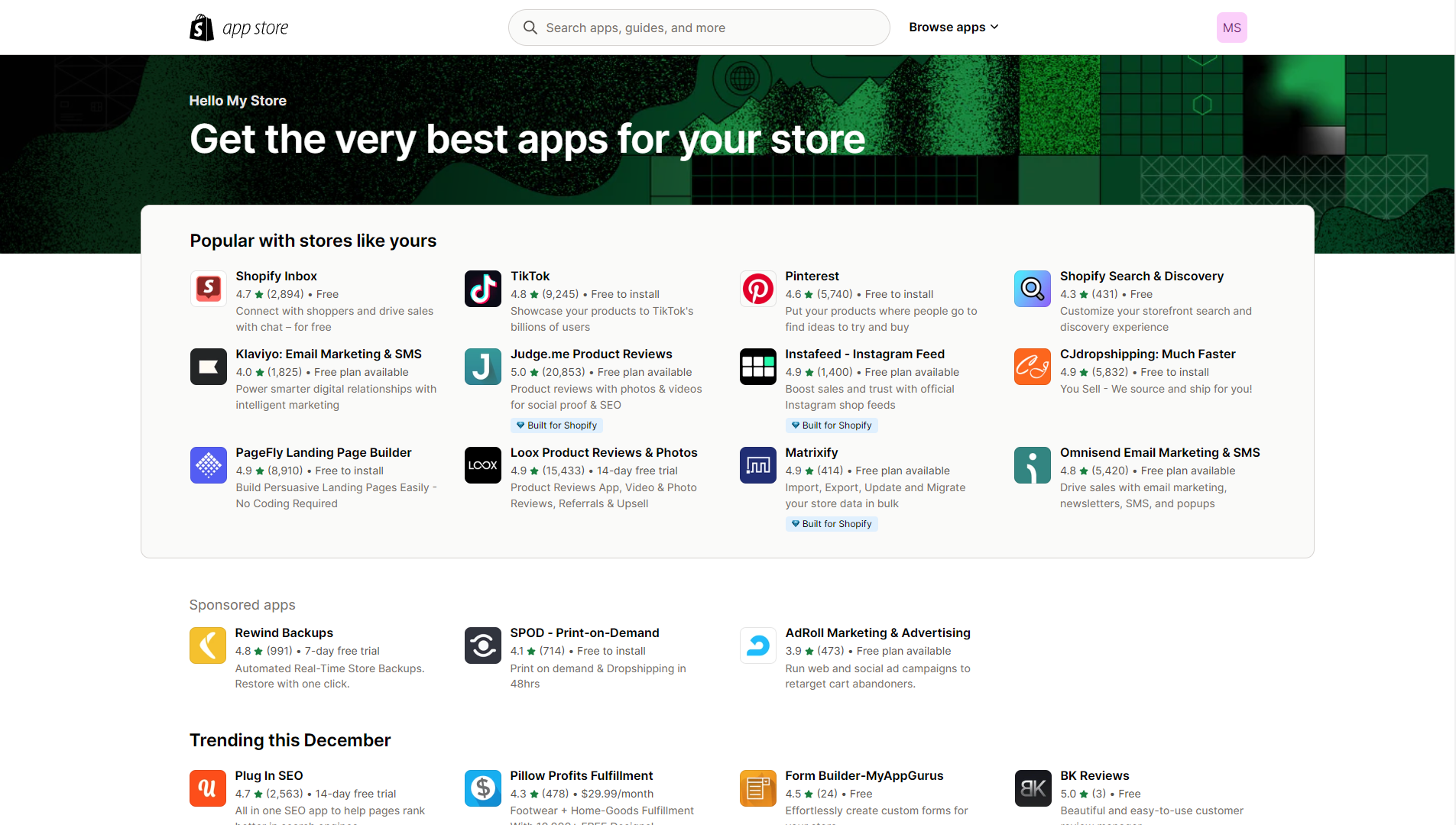

Marketing Features
Design FunctionalitiesRepresents how well each platform allows for creative design and customization of websites.Score Components:
- Template Variety (30%): Range and quality of design templates.
- Customization (30%): Flexibility and options for design alterations.
- User Interface (20%): Ease and intuitiveness of the design process.
- Responsiveness (10%): Adaptability to different devices and screen sizes.
- Innovation (10%): Unique design features and tools.
 8.8
8.8
 2.6
2.6
🏆
Overall Winner: Shopify
. Shopify stands out for its comprehensive ecommerce-focused marketing tools, especially in SEO, email marketing, blogging, social media integration, analytics and reporting, and ads and promotions. Google Sites, while offering basic SEO settings, social media integration, and Google Analytics integration, lacks in email marketing, blogging, and ads and promotions features.

|

|
|
|---|---|---|
|
SEO Tools |
|
Basic SEO settings |
|
Email Marketing |
|
|
|
Blogging |
|
|
|
Social Media Integration |
Advanced integration for selling directly on social platforms |
Basic social media integration |
|
Analytics and Reporting |
Detailed analytics for in-depth insights |
Google Analytics integration |
|
Ads and Promotions |
Google Ads integration; sophisticated ad campaign management |
|
Customer Support
Customer supportEvaluates the quality and availability of support options.Score Components:
- Response time (40%): Speed of support responses.
- Support quality (30%): Effectiveness and helpfulness of the support.
- Availability (20%): Range of support channels (phone, chat, email).
- Resource richness (10%): Quality of self-help and educational materials.
 8.6
8.6
 7.2
7.2
🏆 Winner: Shopify
. Comparing Shopify vs Google Sites, Shopify stands out with a higher customer support score of 8.6 compared to Google Sites’ 7.2. Shopify offers 24/7 support through chat, email, and phone, along with clear tutorials and a robust community forum. Additionally, Shopify’s marketing blog provides valuable insights for business growth.
Google Sites, on the other hand, primarily relies on self-service resources like a Help Center and community forums. Direct support, including phone, email, and live chat, is available to Google Workspace customers, with varying levels of support based on the subscription tier. While Google Sites offers 24/7 support for critical issues to eligible customers, free users have limited access to direct support, making Shopify the more comprehensive option for customer support.
Security
SecurityLooks at the platforms’ security measures and data protection.Score Components:
- Data protection (40%): Safeguards for user and customer data.
- SSL and encryption (30%): Implementation of secure connections.
- Compliance (20%): Adherence to industry security standards.
- Regular updates (10%): Frequency of security updates and patches.
 9.0
9.0
 9.3
9.3
🏆
Winner: Google Sites
. Google Sites, part of the Google Workspace, ensures private data storage and protection through robust measures including data encryption in transit and at rest, strict access controls with two-factor authentication, and adherence to international data protection regulations like GDPR. It offers customized security settings, such as data loss prevention and advanced threat protection, to safeguard against unauthorized access and cyber threats. Additionally, Google Workspace’s compliance with numerous security certifications underscores its commitment to maintaining high privacy and security standards.
Shopify, while also prioritizing data privacy and security, falls slightly short of Google Sites in terms of security score. Shopify’s security measures include secure infrastructure, encryption, and limited access. They comply with data privacy regulations, practice data minimization, and ensure user control and transparency. Additional security measures include two-factor authentication, regular audits, and a dedicated incident response team. Shopify also ensures website security with SSL certificates encrypting data, verifying website identity, and offering SEO benefits. Free SSL certificates are provided, with options for upgrades. The built-in Web Application Firewall filters and blocks threats, and users can add third-party firewalls for extra control and security.
AI Capabilities
AI capabilitiesMeasures the effectiveness of AI-driven features and tools.Score Components:
- Automation efficiency (40%): Impact of AI on streamlining processes.
- Personalization (30%): AI-driven customization for users or customers.
- AI-Assisted design (20%): Role of AI in website design and functionality.
- Data analysis (10%): Use of AI in interpreting user data and analytics.
 7.9
7.9
 0
0

|

|
|
|---|---|---|
|
Personalized Design |
Shopify AI Builder offers personalized design suggestions |
|
|
SEO Optimization |
AI-driven recommendations for better search engine visibility |
|
|
Customer Behavior Analysis |
Advanced analytics to understand customer preferences |
|
|
Sales Predictions |
AI-powered sales forecasting tools |
|
|
Inventory Management |
AI tools to assist in efficient inventory handling |
|
|
Content Generation |
AI assistance in creating and optimizing site content |
|
🏆 Winner: Shopify
. Shopify, with a score of 7.9, utilizes AI mainly to enhance the ecommerce experience. Its AI features focus on customer behavior analysis, personalized shopping experiences, inventory management, and sales predictions.
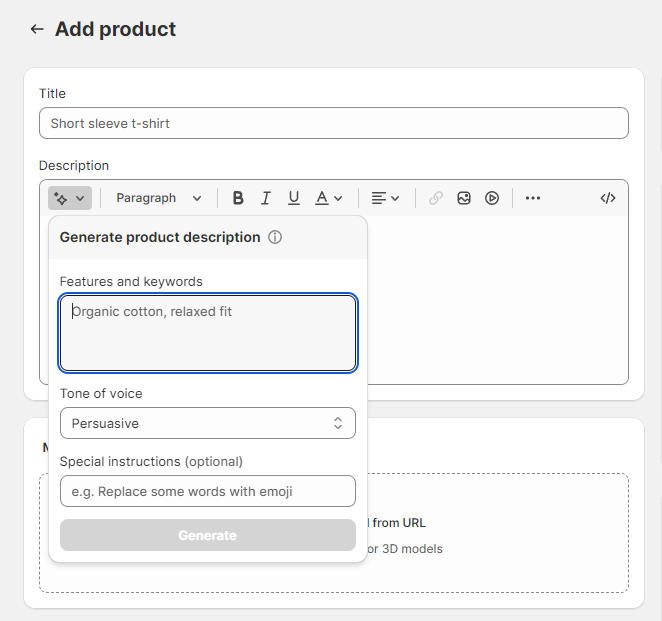
Google Sites, on the other hand, does not have any AI capabilities, scoring 0 in this category. It is a more basic website builder, focusing on ease of use and integration with other Google services, but does not offer the advanced AI features found in Shopify.
User Management
User ManagementAssesses the platforms’ capabilities in managing user roles, permissions, and accessibility.Score Components:
- Role Customization (40%): Flexibility in creating and defining user roles and
permissions. - Ease of Management (30%): User interface and tools for managing users.
- Access Control (20%): Effectiveness of access control measures for different user
levels. - Scalability (10%): Ability to manage a growing number of users efficiently.
 6.5
6.5
 7.8
7.8
🏆 Winner: Google Sites
. Managing your online team with Shopify and Google Sites involves different approaches to website editing access.
-
Shopify enforces staff account limits based on plans, ranging from 2 to 15, with Shopify Plus offering unlimited
accounts. Collaborators with limited access are also an option. - Google Sites, allows multiple users can collaborate with different roles, including Owners, who have full control, and Editors, who can modify content but not site settings. There’s no strict limit on the number of users who can edit a site, allowing flexibility in management and development. Viewers can only see the site, with no editing permissions. This structure supports collaborative website building with varied levels of access and control for different users.
Shopify User Roles and Access Levels:
| Role | Description | Access Highlights |
|---|---|---|
| Store Owner | Full control over store | Manage products, orders, discounts, payments, apps, settings. Create and manage staff accounts. |
| Staff | Configurable access by owner |
Add/edit products, manage orders, fulfill orders, manage customers, update content. Access level can be customized by the owner. |
| Collaborator | Limited access for external partners | View and manage specific sections like blog or product categories. Cannot access full store settings. |
Additional Features

|

|
|
|---|---|---|
|
SSL Certificate |
|
|
|
Custom Domain |
|
|
|
Free Custom Domain Included |
|
|
|
International Domains |
|
|
|
Mobile Responsive |
|
|
|
Page Speed |
|
|
|
Website Builder Mobile App |
|
|
|
Convert a Website To An App |
|
|
|
Website Analytics |
|
|
|
Multilingual Sites |
|
|
|
Multiple Users |
|
|
User Feedback
Shopify’s slightly higher rating on G2 Crowd can be largely attributed to its specialization in ecommerce. Its comprehensive features, ease of use, and robust customer support cater specifically to online businesses, leading to high user satisfaction among those seeking a dedicated ecommerce solution.
Google Sites, on the other hand, is highly praised for its seamless integration with other Google services, ease of use, and collaborative features. Users appreciate its simplicity and user-friendly interface, making it a popular choice for professional and educational needs. While some users desire more customization options, the platform’s versatility and streamlined workflow facilitation contribute to its high user satisfaction.
The making of this blog
We followed a clear, step-by-step process to write and research this article.
FAQ
Can I use Shopify and Google Sites for the same project?
Is Shopify or Google Sites easier to use for beginners?
Which platform is better for creating an online store?
Can I integrate Google Sites with Google Workspace applications?
Which platform offers better customer support?










